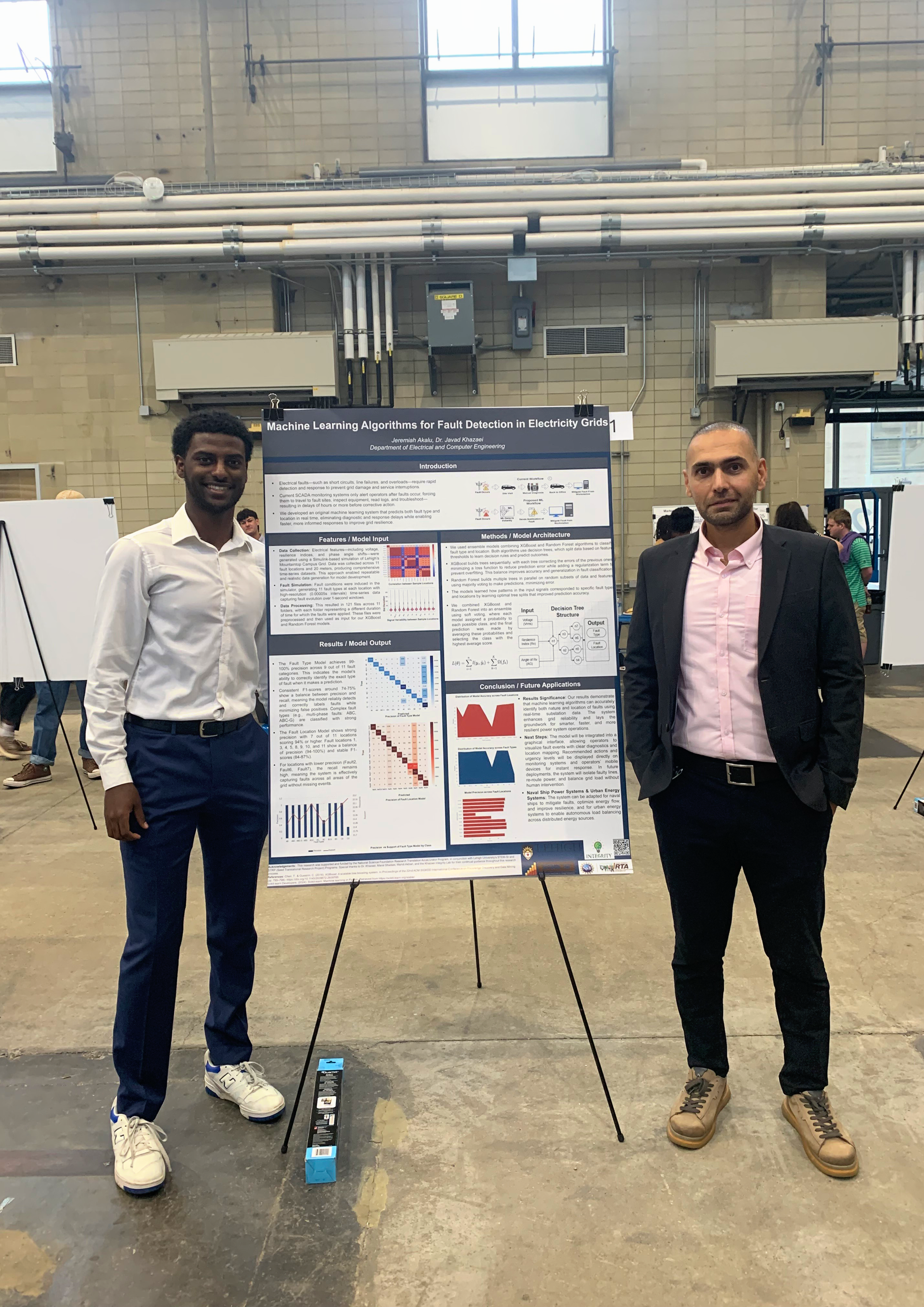
On July 31, 2025, Lehigh University’s Mountaintop Campus hosted its annual Summer Research Day Expo, a showcase of nearly 100 student projects across science, engineering, social impact, and entrepreneurship. For the first time, fellows from the Research Translation AcceLUrator (RTA) Bootcamp joined the event, presenting six projects developed during their 10-week program. Among them, RTA fellow Jeremiah Akalu stood out for his award-winning machine learning research on real-time electric power system resiliency.
Akalu, a fellow from the University of Maryland Baltimore County, presented not one but two posters on his team’s Seed Translation Research Project (STRP). Working under the guidance of Dr. Javad Khazaei, alongside teammates Mehdi Akbari and Maral Shadei (who were simultaneously presenting related work at the IEEE Power & Energy Society General Meeting in Austin, Texas), Akalu showcased research aimed at improving the reliability and resilience of modern power systems.
The team’s project has two promising applications. One, in partnership with the Department of Naval Research, explores how to track and regulate the status of Navy ships. The other uses machine learning to simulate urban power systems, including electricity, water, and transportation networks, to predict vulnerabilities and protect critical infrastructure. This is specifically honed in for emergency preparedness in the event of severe weather or other potential catastrophic events.
Akalu received first place in the Research Day Awards for the Research Category. The recognition highlighted not only the rigor of the team’s work but also Akalu’s ability to communicate complex technical concepts in a clear and compelling way as the sole presenter at the expo.
This accomplishment also highlights the growing impact of the Research Translation AcceLUrator, which provides fellows with the tools and mentorship to move their research beyond the lab. Through this summer bootcamp’s resources, like the RTA Speaker Series, NSF’s I-Corps™ training, and guidance from faculty such as Dr. Khazaei, Akalu and his team are already translating their work into practice. Currently piloted to monitor Lehigh University’s own power systems, the research is poised to expand to larger-scale applications in the years ahead.
